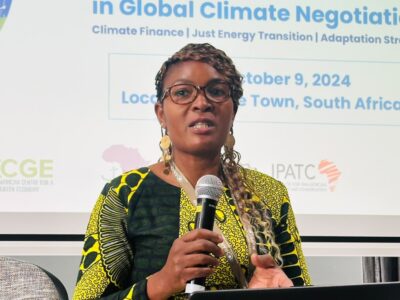The Economic Commission for Africa (ECA) has emphasised the need for African countries to scale up domestic resource mobilisation and debt management.
ECA Deputy Executive Secretary and Chief Economist, Hanan Morsy, also called on African countries to curb revenue leakages and leveraging on the African Continent Free Trade Agreement (AfCFTA).
Morsy said this during the launch of the African Development Bank (AfDB) Group African Economic Outlook 2024 Report in New York on Monday.
She highlighted the importance of crowding in private sector, regulatory certainly and enhancing capacity for innovative financial instruments.
“We need to shift growth paradigm to no longer export our development opportunities by exporting raw materials,” said Morsy.
She noted the need for Africa to lead the way developing green industries and advance its asks for reform of the global financial architecture.
Additionally, Morsy highlighted the need for the African Development Fund to be adequately capitalized to provide adequate concessional and affordable financing.
She emphasized the importance of regional integration, calling for attention on closing the energy gap, food systems to address food security, green industries and value chains and carbon credit market.
Morsy also recommended that the AfDB Group for the International Monetary Fund (IMF) Executive board’s approval on rechanneling of Special Drawing Rights for hybrid capital instruments.
Read More: Economic Commission for Africa outlines measures to bridge SDGs financing gap in Zambia
“More than 470 million people are living in poverty, 600 million people are without access to electricity,” she disclosed.
Further Morsy highlighted that approximately 110 million people directly affected by climate and water-related hazards in Africa inactions on debt come at enormous human cost.
She stated that Africa needed supportive regulatory and legal frameworks for debt management includes building debt sustainability analysis capacities for homegrown solutions and capital market development.
Lillian Saili Bwalya, Permanent Secretary at the Ministry of Commerce, Trade and Industry in Zambia highlighted that when governments reduce tariffs, the ones who implement and benefit are the private sector.
She further added that it was important that the sector was aware of what was happening in this space to ensure that the challenges faced by these players can be addressed.
WARNING! All rights reserved. This material, and other digital content on this website, may not be reproduced, published, broadcast, rewritten or redistributed in whole or in part without prior express permission from ZAMBIA MONITOR.












Comments